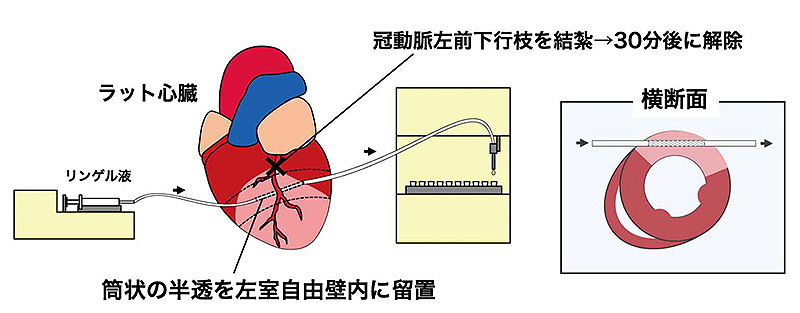2023-10-27 インペリアル・カレッジ・ロンドン(ICL)
◆この発見は、マラリアの感染サイクルを妨害するための有望な方法を提供し、将来の薬剤の開発の標的となり得ることを示唆しています。この遺伝子はマラリア寄生虫に特有であり、ヒトや蚊の他のアクアポリンには影響を及ぼさない可能性があり、アクアポリンを標的とする薬物研究に革命をもたらす可能性があります。
<関連情報>
- https://www.imperial.ac.uk/news/248974/malaria-parasite-gene-could-effective-drug/
- https://www.pnas.org/doi/10.1073/pnas.2304339120
マラリア原虫の細胞内アクアポリン2が媒介蚊の胞子虫産生とマラリア感染に重要であることを発見 Intracellular Plasmodium aquaporin 2 is important for sporozoite production in the mosquito vector and malaria transmission
Alexander J. Bailey, Chiamaka Valerie Ukegbu, Maria Giorgalli, Tanguy Rene Balthazar Besson, George K. Christophides, and Dina Vlachou
Proceedings of the National Academy of Sciences Published:October 26, 2023
DOI:https://doi.org/10.1073/pnas.2304339120

Significance
The results reported here uncover a uniquely evolved aquaporin in malaria parasites, which is important for production of sporozoites during the mosquito phase of the parasite lifecycle. Sporozoites are the parasite form responsible for malaria transmission to humans following a mosquito bite. Aquaporins are known transporters of water and other molecules across biological membranes. The aquaporin has unusual structural features and inhabits a vesicle-like organelle inside parasite cells. Since aquaporins can be targeted by drugs, we propose that this aquaporin may be a promising target of future antimalarial interventions.
Abstract
Malaria remains a devastating disease and, with current measures failing to control its transmission, there is a need for novel interventions. A family of proteins that have long been pursued as potential intervention targets are aquaporins, which are channels facilitating the movement of water and other solutes across membranes. We identify an aquaporin in malaria parasites and demonstrate that it is important for completion of Plasmodium development in the mosquito vector. Disruption of AQP2 in the human parasite Plasmodium falciparum and the rodent parasite Plasmodium berghei blocks sporozoite production inside oocysts established on mosquito midguts, greatly limiting parasite infection of salivary glands and transmission to a new host. In vivo epitope tagging of AQP2 in P. berghei, combined with immunofluorescence assays, reveals that the protein is localized in vesicle-like organelles found in the cytoplasm of gametocytes, ookinetes, and sporozoites. The number of these organelles varies between individual parasites and lifecycle stages suggesting that they are likely part of a dynamic endomembrane system. Phylogenetic analysis confirms that AQP2 is unique to malaria and closely related parasites and most closely resembles intracellular aquaporins. Structure prediction analyses identify several unusual features, including a large accessory extracellular loop and an arginine-to-phenylalanine substitution in the selectivity filter principally determining pore function, a unique feature among known aquaporins. This in conjunction with the importance of AQP2 for malaria transmission suggests that AQP2 may be a fruitful target of antimalarial interventions.


